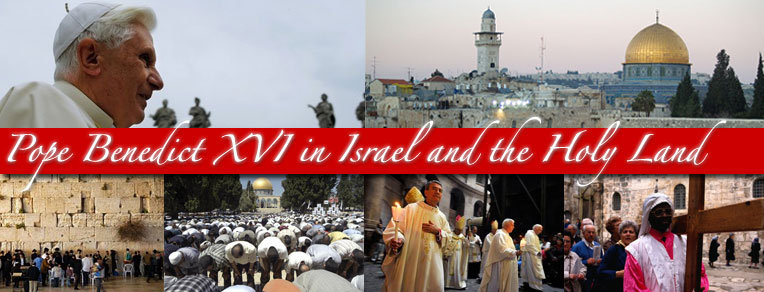Some, like Bishop Dr. Munib Younan, head of the Evangelical Lutheran Church in Jordan and the Holy Land, engaged in political speculation (hoping Benedict would support a 2-state solution and reject "occupation and settlements"); others, like Father William Shomali, rector of the Latin Seminary in Bet Jala, expressed hope that Benedict's example would help assist in recognizing the suffering of "the other":
"The pope will visit Yad Vashem to recognize the suffering of the Jews, he will visit with the Armenians to remember their suffering and the 1.5 million who were killed, and he will also devote time to acknowledging the Palestinian people's suffering," Shomali said. "I hope the holy father will help all of us escape our complexities of victimization. Part of the process of reconciliation is admitting one's guilt."Recalling the public spats between Jewish and Muslim leaders during the visit of John Paul II in 2000, Shomali noted "each side spoke exclusively about their own suffering."
Additional contributors included Prof. Mohammed Dejani, founder and director of the American Studies Institute at Al-Quds University in east Jerusalem, and Dr. Deborah Weissman, co-chairwoman of the Interreligious Coordination Council.
The symposium was sponsored by the US State Department; Mercy Corps, a nondenominational Portland, Oregon-based aid organization; and the Interreligious Coordination Council in Israel, a coalition of 70 Christian, Muslim and Jewish groups.










No comments:
Post a Comment